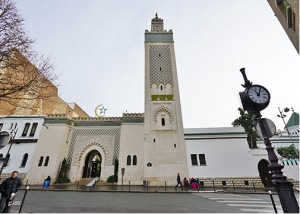Trauma and nostalgia are displaced migrants’ common everyday experiences, particularly in these recent years of EU refugee and security crisis, says cultural memory studies fellow Dr Matthew Mild, who will look at neurological and intertextual memory on 23 March, 4pm-6pm, and at French-Turkish-Muslim exchanges on 11 March, 11am-6pm.
About a month ago I had to switch off the radio for a few days to reduce my daily intake of comments on the – to everyone’s relief – overruled Muslim travel ban across the pond. Meanwhile, on our side of the ocean, a young Turkish-French film director has been widely acclaimed for her debut, which is a brilliant addition to the impressively long list of highly successful migrant European films made by film directors who are originally from the same Muslim-majority country.
Motion pictures have the potential to transform cultural memory into a cathartic journey. Deniz Gamze Ergüven’s 2015 film Mustang keeps this promise. This dark parable on trauma and self-overcoming has won the César awards for Best Original Screenplay, Best Editing, Best Original Music, and Best First Feature Film. With its cinematic rewriting of classical tropes from the French fairytale Bluebeard in rural Turkey, the film raises the issues of women’s rights, faith, identity, family, and trauma on the screen.
Perhaps post-traumatic stress is an area of study whose liminality between neurological and cultural memory can play a part in fostering an aesthetic estrangement from othering ideologies – a critical re-engagement with a piece of the French/European self in its non-Christian neighbour. Everyday radical thinking and the social reinvestment in interfaith understanding give rise to multiple lieux de mémoire beyond established definitions of identity and belonging. This rebuilding of cultural memory is represented by neuroplasticity in political, literary, and filmic discussions of racism and sexism, in which learned fears and cultural traumas/nostalgias give way to a rewiring of perceptions and experiences. Such neuroscientists as Eric Kandel, Vilayanur Ramachandran, and Norman Doidge have found evidence of the key function played by the so-called neuroplastic rewiring of memory and learning for the brain’s activity. In such cases as the treatment of obsessive compulsive disorder, learned fears stored in the brain’s cingulate gyrus and reflected in the orbitofrontal cortex are unlearned by activating the gearshift supplied in the brain’s caudate nucleus. In this and other instances, new neuronal networks replace old ones thanks to the neuroplastic property of neurons and synapses processing information.
We’ll be looking at neurological and intertextual memory on 23 March, and (with the Cassal-Staunton Trust’s generous support) at French-Turkish-Muslim exchanges in Senate House on 11 March. From Muslims in French banlieue cultural memory and in medieval chronicles of the crusades to Barbe-bleue-like visions of trauma vs. belonging in the film Mustang, our discussion will span several centuries of French/European relations with Turkey and Islam. The film screening will crown the day.
Both events endeavour to question existing demarcations between disciplines, media, and cultures. I hope that numerous fellow questioners will take this chance to challenge intangible walls.
Dr Matthew Mild is a fellow in cultural memory studies at the Institute of Modern Languages Research, School of Advanced Study, University of London. Dr Mild previously lectured in Italian and European history in Northwest England and Wales. He has published in the field of contemporary history of fiction and performing arts from France, Italy, and Germany. His current research deals with migrant cultural memory in cinema and literature.


